Governance and Finance
Corporate governance today is about more than just making profits for shareholders. It now aims to balance the needs of all stakeholders-employees, investors, creditors, and business partners. Good governance helps companies run better, attract talent, gain customer trust, and lower financial costs. Conversely, poor governance can lead to scandals, job losses, and broken contracts.
The “Governance and Finance” research group studies how governance works in modern financial markets. One of the focuses is on how firms choose, motivate, and keep talented leaders, especially CEOs, since exemplary leadership is key to company success.
The group is also interested in investigating how changes in financial markets, like the rise of big shareholders, activist investors, or even creditors, affect company decisions. The goal is to understand how different players and institutions influence company behavior and what that means for the future of business.
Research Cluster
Financial Resilience and RegulationYour contact

- Department Financial Markets
Refereed Publications

Market Feedback Effect on CEO Pay: Evidence from Peers’ Say-on-Pay Voting Failures
in: Journal of Financial and Quantitative Analysis, forthcoming
Abstract
<p>We find that a firm’s stock price drops when its compensation peer firm announces a severe say-on-pay voting failure. This price drop causes a reduction in the focal firm CEO’s pay in the following period. The effect on CEO pay is stronger when the board of directors is more powerful, when the proxy advisor holds a negative view of the CEO’s pay, and when the hired compensation consultant is less reputable. Directors who cut their CEO’s pay following the price drop receive more voting support from investors than other directors. Our findings show that the peer firm’s voting failure induces a market-feedback effect for focal firm directors.</p>
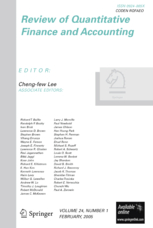
CEO Personality Traits and Compensation: Evidence from Investment Efficiency
in: Review of Quantitative Finance and Accounting, forthcoming
Abstract
<p>We examine the effects of the big five personalities of CEOs (openness, conscientiousness, extroversion, agreeableness, and neuroticism) on their annual compensation. We hand-collect the tweets of S&P 1500 CEOs and use IBM's Watson Personality Insights to measure their personalities. CEOs with high ratings of agreeableness and conscientiousness get more compensation. We further find that the firms with these CEOs outperform their peers due to better investment efficiency. Firms are willing to pay higher compensation for talent, especially for firms with better operations, located in states with higher labor unionization, or facing higher competition in the product market. Overall, CEO personality is a valid predictor of CEOs' compensation.</p>
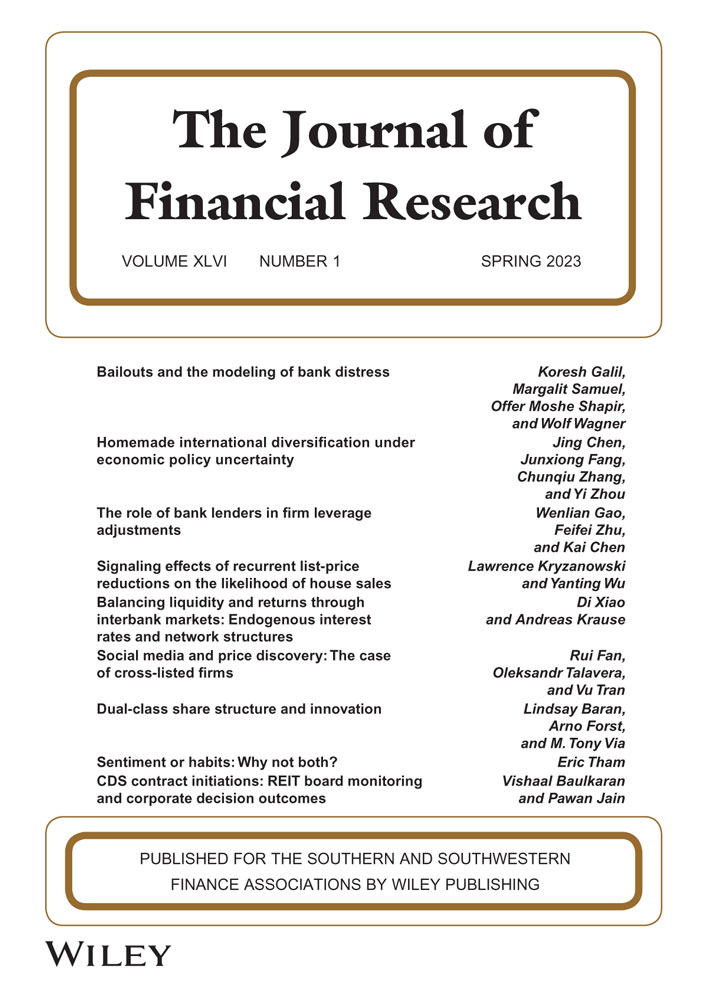
Social Connections and Information Leakage: Evidence from Target Stock Price Run-up in Takeovers
in: Journal of Financial Research, No. 2, 2025
Abstract
<p>Does information leakage in a target's social networks increase its stock price prior to a merger announcement? Evidence reveals that a target with more social connections indeed experiences a higher pre-announcement price run-up. This effect does not exist during or after the merger announcement, or in windows ending two months before the announcement. It is more pronounced among targets with severe asymmetric information, and weaker when the information about the upcoming merger is publicly available prior to the announcement. It is also weaker in expedited deals such as tender offers.</p>
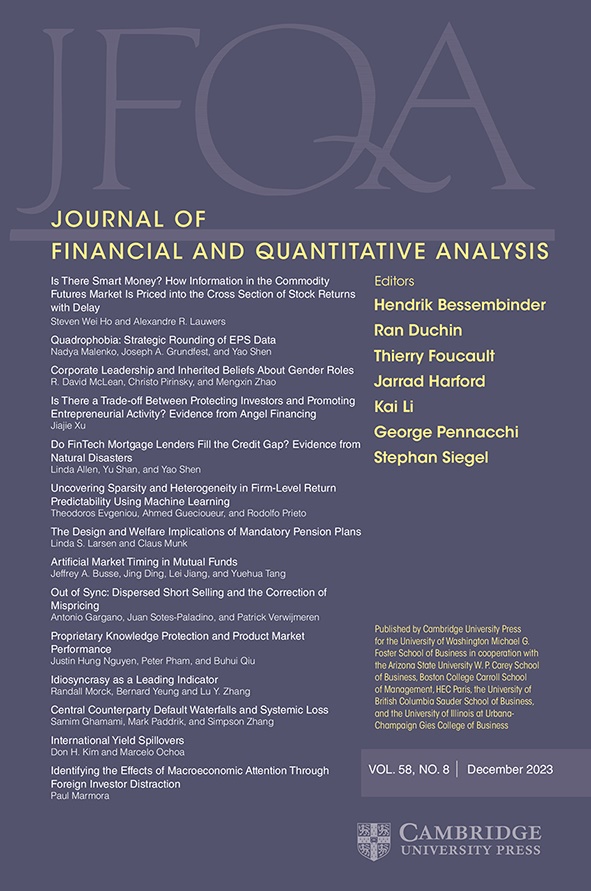
The Corporate Investment Benefits of Mutual Fund Dual Holdings
in: Journal of Financial and Quantitative Analysis, No. 2, 2025
Abstract
Mutual fund families increasingly hold bonds and stocks from the same firm. We present evidence that dual ownership allows firms to increase valuable investments and refinance by issuing bonds with lower yields and fewer restrictive covenants, especially when firms face financial distress. Dual holders also prevent overinvestment by firms with entrenched managers. Overall, our results suggest that mutual fund families internalize the agency conflicts of their portfolio companies, highlighting the positive governance externalities of intra-family cooperation.
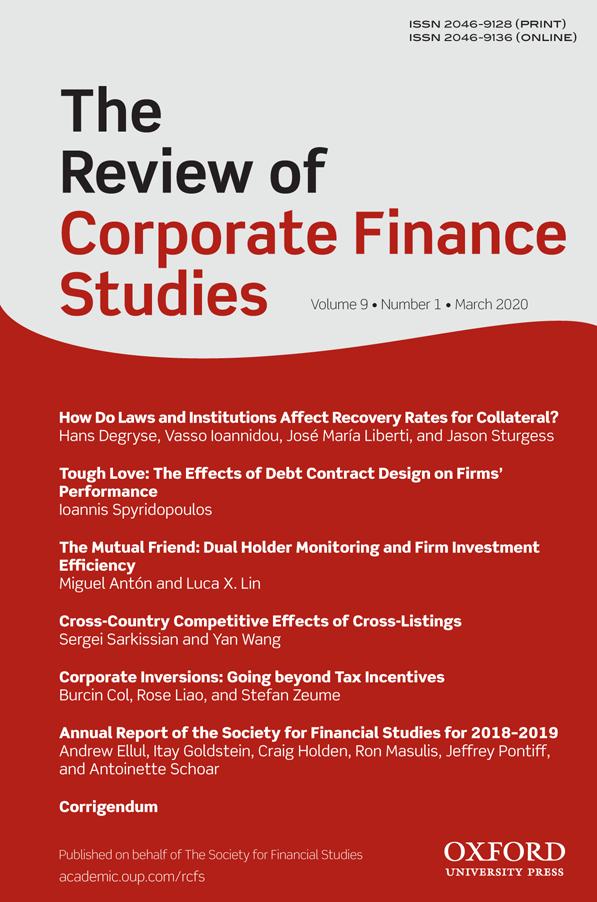
Creditor-control Rights and the Nonsynchronicity of Global CDS Markets
in: Review of Corporate Finance Studies, No. 1, 2025
Abstract
<p>We analyze how creditor rights affect the nonsynchronicity of global corporate credit default swap spreads (CDS-NS). CDS-NS is negatively related to the country-level creditor-control rights, especially to the “restrictions on reorganization” component, where creditor-shareholder conflicts are high. The effect is concentrated in firms with high investment intensity, asset growth, information opacity, and risk. Pro-creditor bankruptcy reforms led to a decline in CDS-NS, indicating lower firm-specific idiosyncratic information being priced in credit markets. A strategic-disclosure incentive among debtors avoiding creditor intervention seems more dominant than the disciplining effect, suggesting how strengthening creditor rights affects power rebalancing between creditors and shareholders.</p>
Working Papers
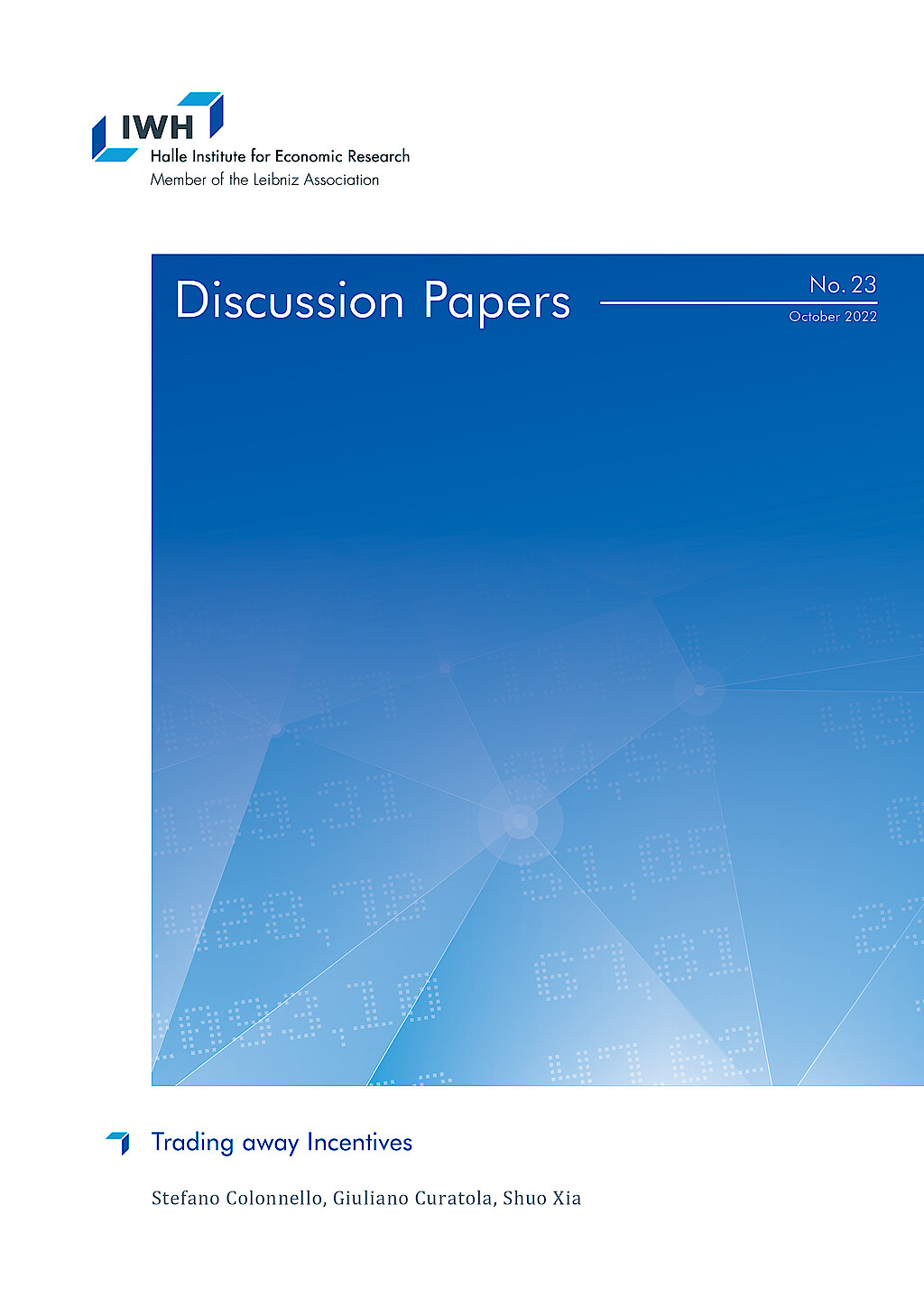
Trading away Incentives
in: IWH Discussion Papers, No. 23, 2022
Abstract
Equity pay has been the primary component of managerial compensation packages at US public firms since the early 1990s. Using a comprehensive sample of top executives from 1992-2020, we estimate to what extent they trade firm equity held in their portfolios to neutralize increments in ownership due to annual equity pay. Executives accommodate ownership increases linked to options awards. Conversely, increases in stock holdings linked to option exercises and restricted stock grants are largely neutralized through comparable sales of unrestricted shares. Variation in stock trading responses across executives hardly appears to respond to diversification motives. From a theoretical standpoint, these results challenge (i) the common, generally implicit assumption that managers cannot undo their incentive packages, (ii) the standard modeling practice of treating different equity pay items homogeneously, and (iii) the often taken for granted crucial role of diversification motives in managers’ portfolio choices.
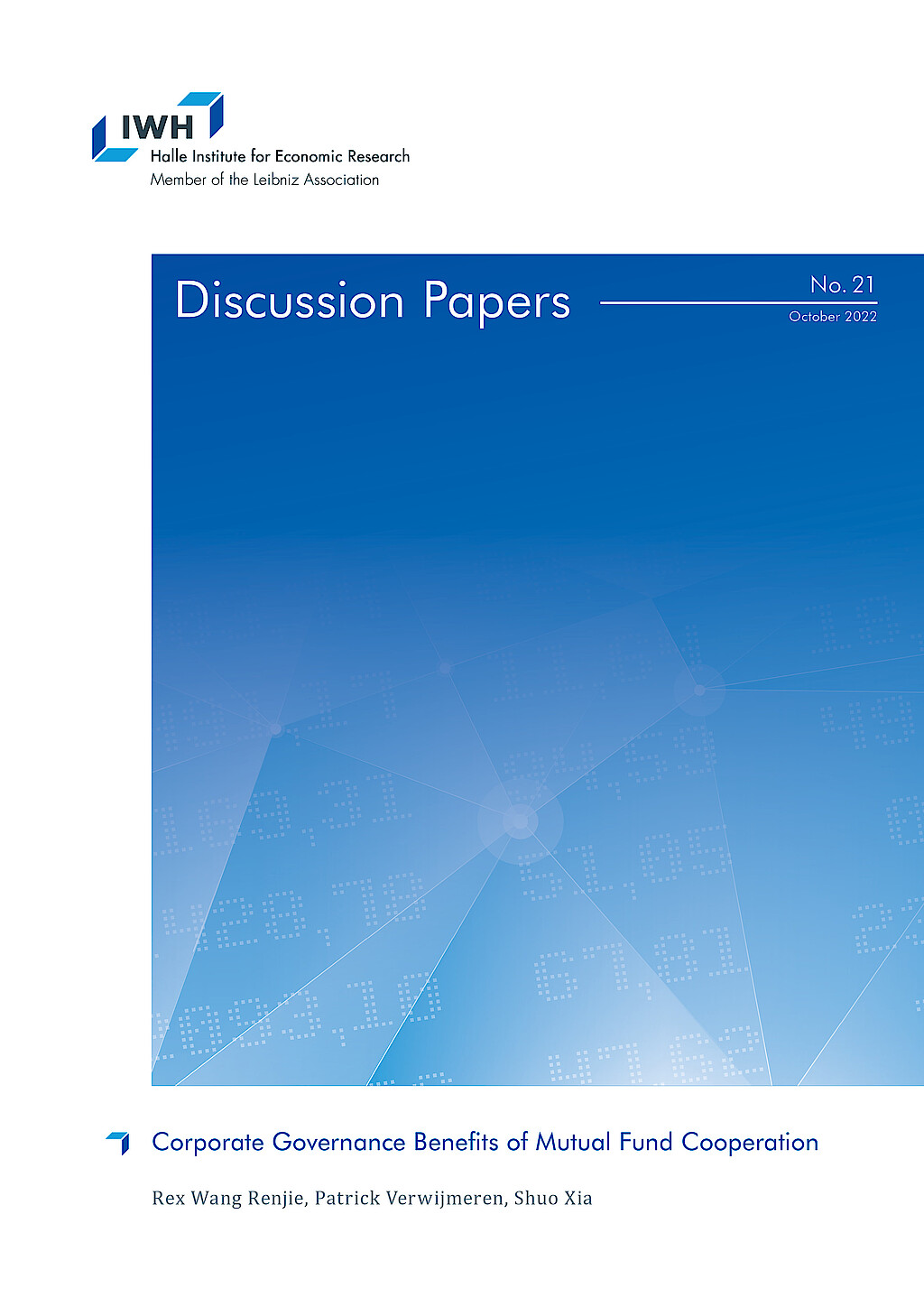
Corporate Governance Benefits of Mutual Fund Cooperation
in: IWH Discussion Papers, No. 21, 2022
Abstract
Mutual fund families increasingly hold bonds and stocks from the same firm. We study the implications of such dual holdings for corporate governance and firm decision-making. We present evidence that dual ownership allows financially distressed firms to increase investments and to refinance by issuing bonds with lower yields and fewer restrictive covenants. As such, dual ownership reduces shareholder-creditor conflicts, especially when families encourage cooperation among their managers. Overall, our results suggest that mutual fund families internalize the shareholder-creditor agency conflicts of their portfolio companies, highlighting the positive governance externalities of intra-family cooperation.

Why Do Workers at Larger Firms Outperform?
in: Working Paper, 2020
Abstract
Workers at larger firms outperform on average. For example, equity analysts working for more reputable brokerage firms produce more accurate earnings forecasts. Analysts employed by the highest ranked brokerages are about 6% more accurate than those employed by the lowest ranked brokerages, which is equivalent to an advantage of 17.5 years of more experience. This outperformance is driven by two significant effects: more reputable firms provide more resources that improve analysts' forecasting ability (influence), while more reputable firms also attract more talented candidates (sorting). We estimate a two-sided matching model to disentangle these two effects. We find that the direct influence effect accounts for 73% of the total impact while the sorting effect accounts for the remaining 27%.

Lame-Duck CEOs
in: SSRN Working Papers, 2018
Abstract
We examine the relationship between protracted CEO successions and stock returns. In protracted successions, an incumbent CEO announces his or her resignation without a known successor, so the incumbent CEO becomes a “lame duck.” We find that 31% of CEO successions from 2005 to 2014 in the S&P 1500 are protracted, during which the incumbent CEO is a lame duck for an average period of about 6 months. During the reign of lame duck CEOs, firms generate an annual four-factor alpha of 11% and exhibit significant positive earnings surprises. Investors’ under-reaction to no news on new CEO information and underestimation of the positive effects of the tournament among the CEO candidates drive our results.

Selection Versus Incentives in Incentive Pay: Evidence from a Matching Model
in: SSRN Working Papers, 2018
Abstract
Higher incentive pay is associated with better firm performance. I introduce a model of CEO-firm matching to disentangle the two confounding effects that drive this result. On one hand, higher incentive pay directly induces more effort; on the other hand, higher incentive pay indirectly attracts more talented CEOs. I find both effects are essential to explain the result, with the selection effect accounting for 12.7% of the total effect. The relative importance of the selection effect is the largest in industries with high talent mobility and in more recent years.










